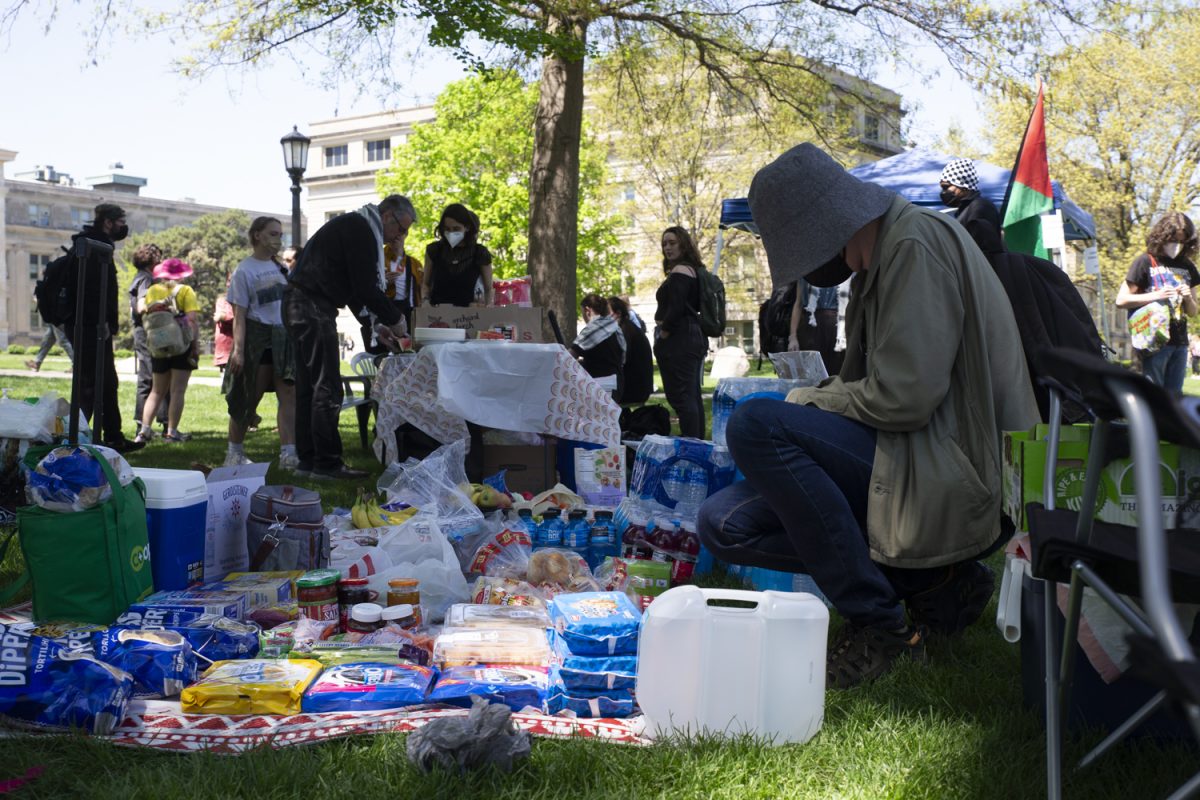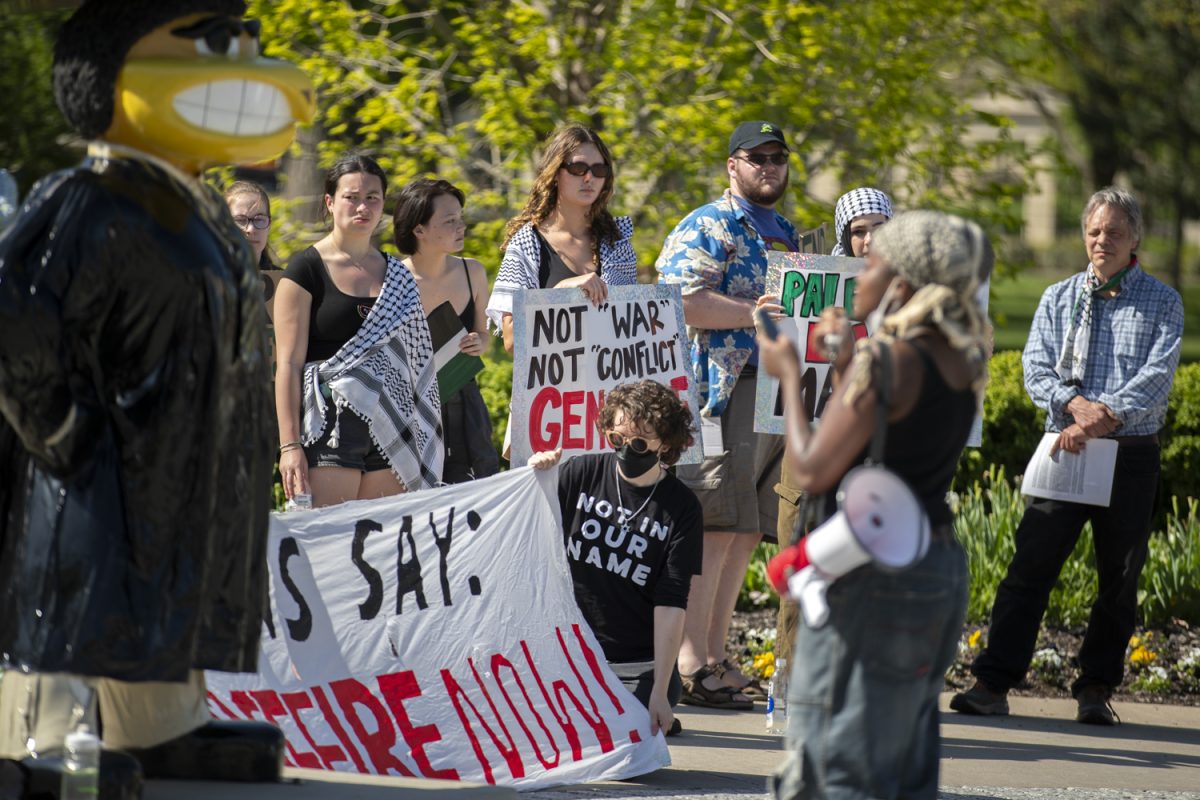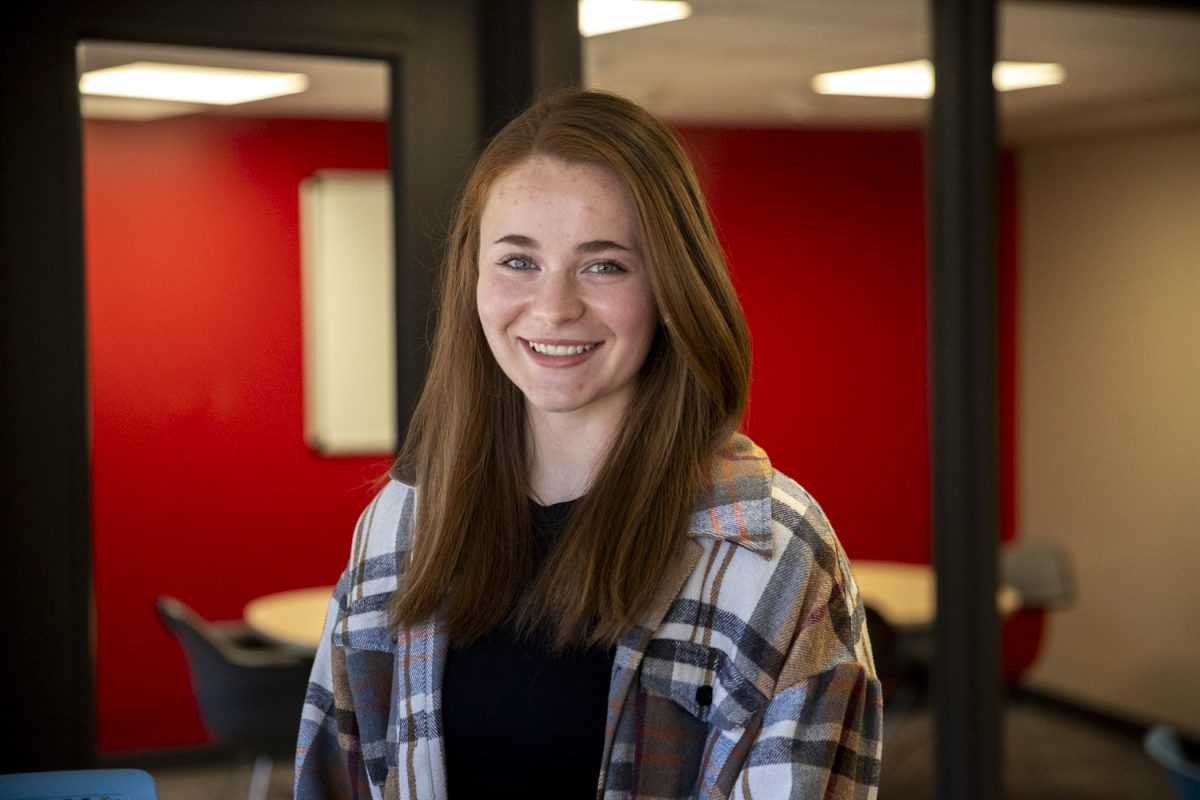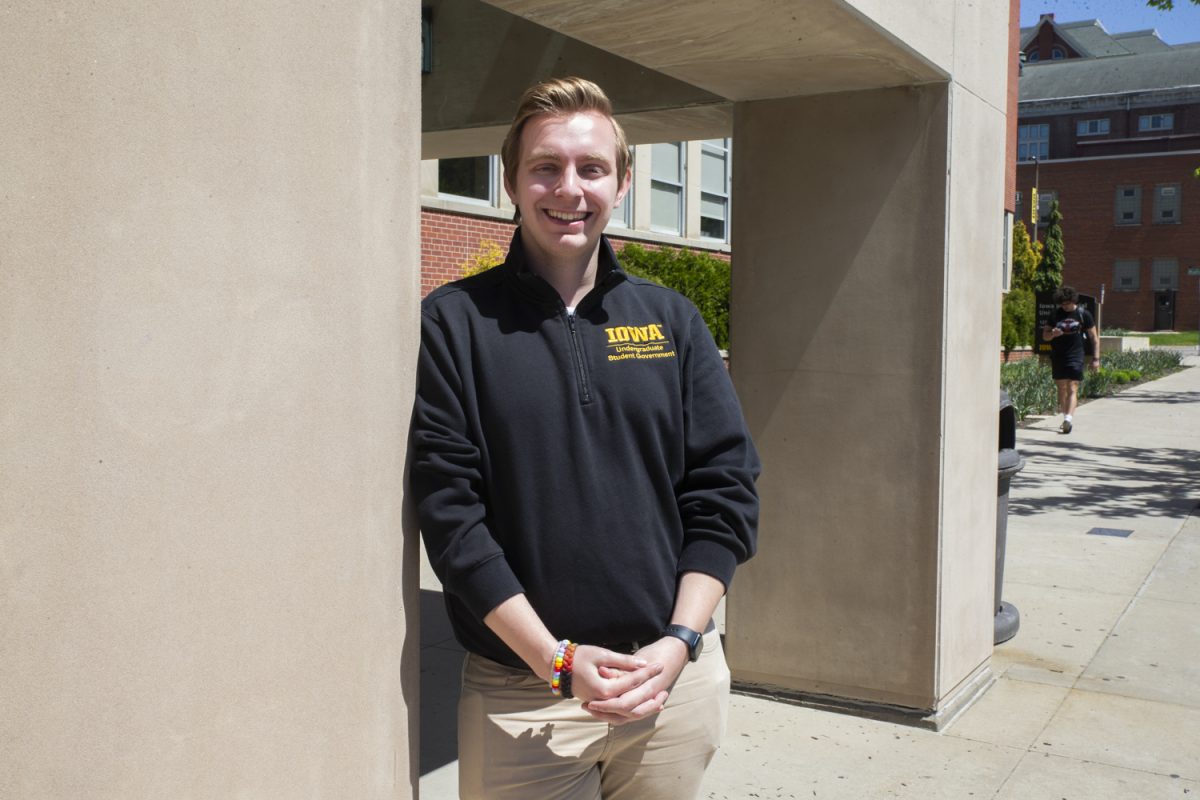A Latinx panel delves into questions of identity, birth country, various cultures, and family.
Maria Kuiper
On Sunday afternoon, the Interested Gentlemen of Lambda Theta Phi Latin fraternity hosted a discussion on inclusion of Latinx groups on campus and the Iowa City community.
The main speakers of the event were Karla Alvarez, a multicultural specialist for the Center for Diversity and Enrichment, Jesús Payán, a multicultural program coordinator, and Ignacio Alvarez, an academic adviser, Interested Gentlemen of Lambda Theta Phi President Gerardo Guerrero-Segura.
Common themes included identity regarding ethnicity, birth country, culture, and family.
Ignacio Alvarez said he views identity as an onion.
“When people first see me, they see an Arab or a Mexican,” he said. “Then they start peeling the layers and see I am Mexican American, my political affiliation is Chicano, and my religious values are Muslim. Peeling away the onion, you start realizing its not so simple as just what you see.”
There are four common terms regarding identity in Latinx culture. Latinx is used when people or their ancestors come from a Latin American country. Hispanic refers to people who come from a country whose main language is Spanish. The term Mexican is for people who are from Mexico, and Chicano is used to refer to someone who was born in the United States but is of Mexican descent.
“A lot of other Latinx minorities get put in a bundle as Mexican,” Guerrero-Segura said. “As a Mexican, I feel bad for others who get titled Mexican when they are not. They don’t get acknowledged for who they really are.
“There’s an assumption if you look a certain way, your personal identity gets mistaken. For me, people assume I’m white because I look, and act, and talk like an American, so that becomes a struggle because I know my identity is Mexican American, and there is so much more from my culture.”
Another topic discussed was representation.
“I was the only Latina in my residence hall,” said Karla Alvarez, who lived in Currier some years ago. “I was one of the two Latinas in the whole Tippie College of Business.”
According to the Pew Research Center, 15 percent of 25- to 29-year-old Hispanic individuals have bachelor degrees or higher; 41 percent of white individuals do.
Ignacio Alvarez said these statistics are close to the same from when he was in school.
“We have to connect with others,” he said. “You’re not going to be able to take over the castle by just pounding on the door. You have to get in the door, and find ‘allyship,’ and connect with other people.”
Payán spoke about connectedness as well.
“A home away from home can be within oneself. You can reclaim that your identity doesn’t need to be validated by the room but by yourself,” he said. “You can go anywhere in the world when you are at home.”










